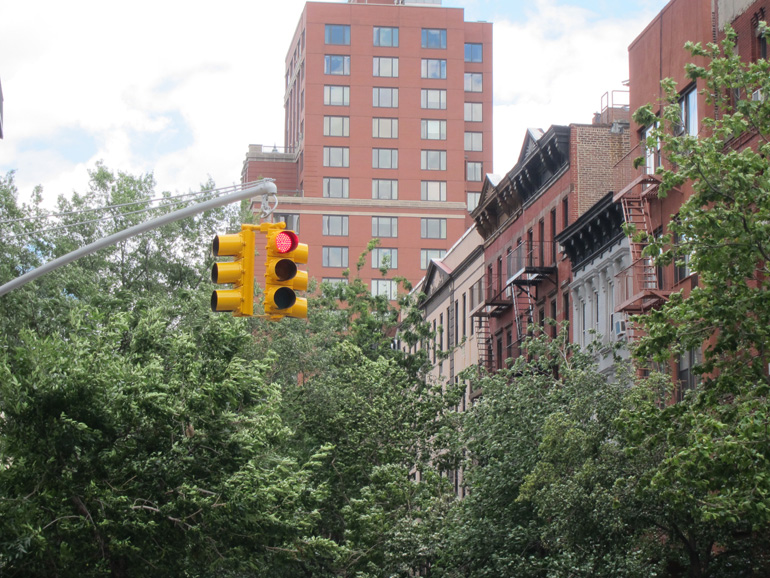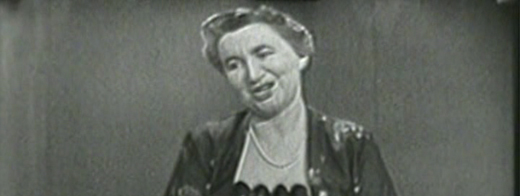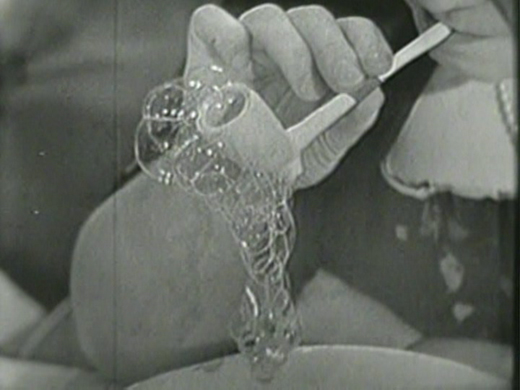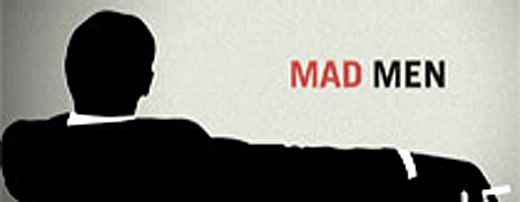Gotham Diary:
Transport
3 July 2012
Monday, July 2nd, 2012
The first thing that I read when I got this week’s New Yorker up to the apartment was Nathan Heller’s “Listen and Learn,” a report on TED. If you don’t know what TED is, I am not going to help you. (Not here. If I ever make more considered use of this entry’s material, I will at least throw in a link.) It just seems that explaining TED in a blog entry, at this moment in time, is much like reminding you to turn on your computer.Â
I haven’t watched much in the way of TED talks, partly because the ones that I did see were powerful contributors to my decision to resist all visual aids in the development of my fach. Aside from the photographs that decorate this site, and that have nothing to do with the written contents, perhaps even offering a haven of carefree purposelessness from the sea of memory and interrogation that pours out of me — aside from them, nothing. I’m like The New Yorker itself in the old days: no photographs and few drawings (aside, of course, from the “drawings”). That’s because I believe that visual display is profoundly distracting from the enterprise of sharing and parsing ideas. To grasp an idea, you must close your eyes — close your eyes, that is, in the act commonly known as “reading.” You must, in the course of bringing words to life in your brain, imagine an environment other than the one in which you’re reading. Sometimes it’s fun; often it’s hard work. There is reason to believe that there is a correlation between hard work and real learning. Learning is put to the test by doing. Where ideas are considered, writing is doing. As you’re no doubt aware, writing is even harder work than serious reading.
Watching someone tell an interesting story (which can be about anything in the world) is never going to be hard work. There is only one thing to learn from a TED talk: that you did or did not enjoy yourself while it lasted. As with sex, learning is slightly beside the point.
***
Heller is brilliant about TED.
The TED talk is today a sentimental form. Once, searching for transport, people might have read Charles Dickens, rushed the dance floor, watched the Oscars, biked Mount Tamalpais, put on Rachmaninoff, put on the Smiths, played Frisbee, poured wine until someone started reciting “somewhere i have never travelled, gladly beyond.” Now there is TED.
Transport. Yes. No thanks.
***
My disaffection with TED talks began long before I ever saw one, back in the mid-early days of The New Yorker Festival. Over three years, I attended ever more events, beginning with one and ending with six. Most of the events were literary in nature — or were billed as such. The first that I attended was a reading Edward T Jones (and was Jonathan Lethem there, too? I don’t remember.) At the last one, John Ashbery read some of his poems. It was at the New York Public Library, shortly before the Ashbery reading, that I came to the end of my Festival line. The hall was packed — not that this was a discomfort — and someone was interviewing Calvin Trillin, who of course was making the audience laugh a lot. (I remember a string of jokes about the “wily and parsimonious Victor Navasky,” then the publisher of The Nation.) Something about the laughter began to put me off. I was as entertained as anyone, but was the search for entertainment what had gotten me out of the house early on a weekend morning? Did I regard Calvin Trillin as an entertainer? No, as it happens, I didn’t, and I don’t. He is a writer — a very amusing one, certainly — whose presence adds little to the zing of his written words.
If I am going to see Calvin Trillin, then I want to meet Calvin Trillin, to sit down and talk with him. I realized two things at the Library. First, much as I enjoyed Trillin’s writing, I did not feel an urge to know him better. Jonathan Franzen — now there’s someone I’d like to talk to. I think. I have always wanted to have a conversation with Sigourney Weaver — about her father, perhaps the most deeply disappointed man in the history of television. (That is my inference, at least. I’d like to hear what she thinks, and what she saw growing up.) I did once have a sensationally fun conversation with Kate Christensen; I was able to tell her that I’d read all her books because my daughter and her first editor were college chums. In the aftermath of Netherland, I’m afraid that Joseph O’Neill might have come to fear that I was stalking him, but he very graciously granted my eccentric request for a signature on page 135 of my copy of his novel. And I cannot deny that bandying a word or two with Colm TóibÃn has colored my reading of his work; it most certainly has done, and I’m grateful. I no New Critic, determined to reject any and all information about an artist extrinsic to the artwork itself. Heavens, no! But in each of the foregoing instances (all of them retailed pretty much the next morning, long ago in these pages), there was a personal encounter in which the writer, however forgettably, met me. The exchange was two-way, and we are the only two people who had it. The twinkle of that kind of memory was entirely absent from the experience of watching Calvin Trillin be witty.
***
I completely agree with Sir Ken Robinson’s views on public education. “I think you’d have to conclude that the whole purpose of public education throughout the world is to produce university professors.” Education, as it’s dished out today, almost anywhere, is wasted upon most of its reluctant recipients, and the university professors aren’t going to notice or care. Functionally, public education amounts to little more than day care for older children. A school that provides more than day care, and provides it consistently even to a quarter of its students, is a marvel. I may look up Sir Ken; I’ll certainly look out for signs of his impact on public education. But I am not going to look at his TED talk, which Heller says is “the most-viewed TED talk of all time.” I’m not in need of transport.
***
It appears (see yesterday’s entry) that I am not going the way of Nora Ephron, whatever the state of my platelets. Not yet. I’m slightly abashed about having brought the visit up at all, and I’ll try not to say anything about next week’s (routine) colonoscopy.



















